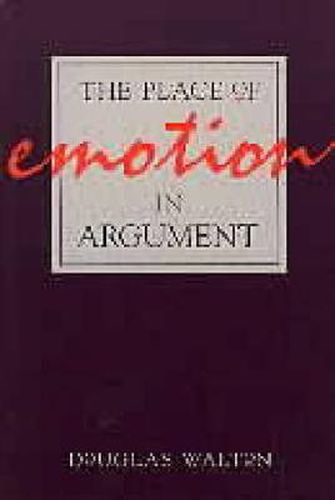Readings Newsletter
Become a Readings Member to make your shopping experience even easier.
Sign in or sign up for free!
You’re not far away from qualifying for FREE standard shipping within Australia
You’ve qualified for FREE standard shipping within Australia
The cart is loading…






Appeals to emotion-pity, fear, popular sentiment, and ad hominem attacks-are commonly used in argumentation. Instead of dismissing these appeals as fallacious wherever they occur, as many do, Walton urges that each use be judged on its merits. He distinguished three main categories of evaluation.
First, is it reasonable, even if not conclusive, as an argument?
Second, is it weak and therefore open to critical questioning for argument? And third, is it fallacious?
The third category is a strong charge that incurs a critical burden to back it up by citing evidence from the given text and context of dialogue.
Walton uses fifty-six case studies to demonstrate that the problem of emotional fallacies is much subtler than has been previously believed. Ranging over commercial advertisements, political debates, union-management negotiations, and ethical disputes, the case studies reveal that these four types of appeals, while based on presumptive reasoning that are tentative and subject to default, are not always or necessarily fallacious types of argumentation.
$9.00 standard shipping within Australia
FREE standard shipping within Australia for orders over $100.00
Express & International shipping calculated at checkout
Appeals to emotion-pity, fear, popular sentiment, and ad hominem attacks-are commonly used in argumentation. Instead of dismissing these appeals as fallacious wherever they occur, as many do, Walton urges that each use be judged on its merits. He distinguished three main categories of evaluation.
First, is it reasonable, even if not conclusive, as an argument?
Second, is it weak and therefore open to critical questioning for argument? And third, is it fallacious?
The third category is a strong charge that incurs a critical burden to back it up by citing evidence from the given text and context of dialogue.
Walton uses fifty-six case studies to demonstrate that the problem of emotional fallacies is much subtler than has been previously believed. Ranging over commercial advertisements, political debates, union-management negotiations, and ethical disputes, the case studies reveal that these four types of appeals, while based on presumptive reasoning that are tentative and subject to default, are not always or necessarily fallacious types of argumentation.